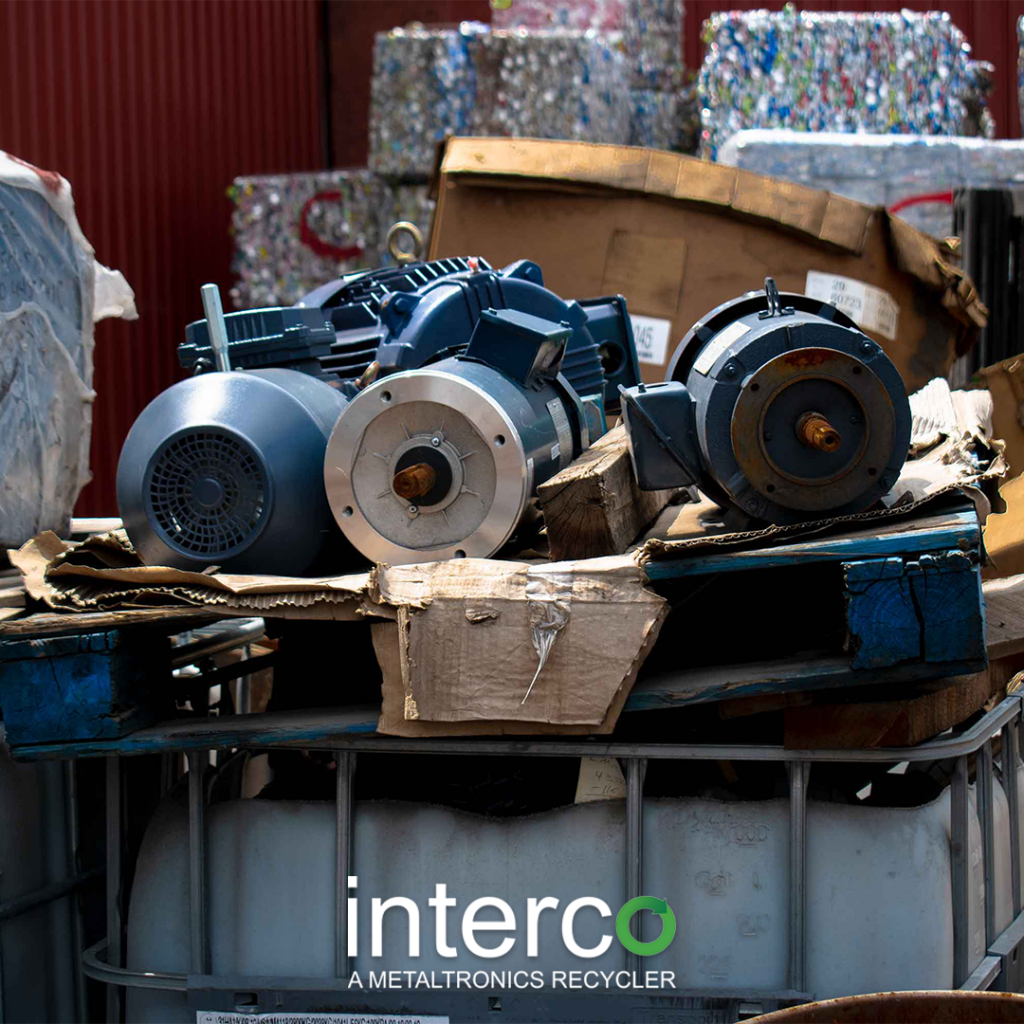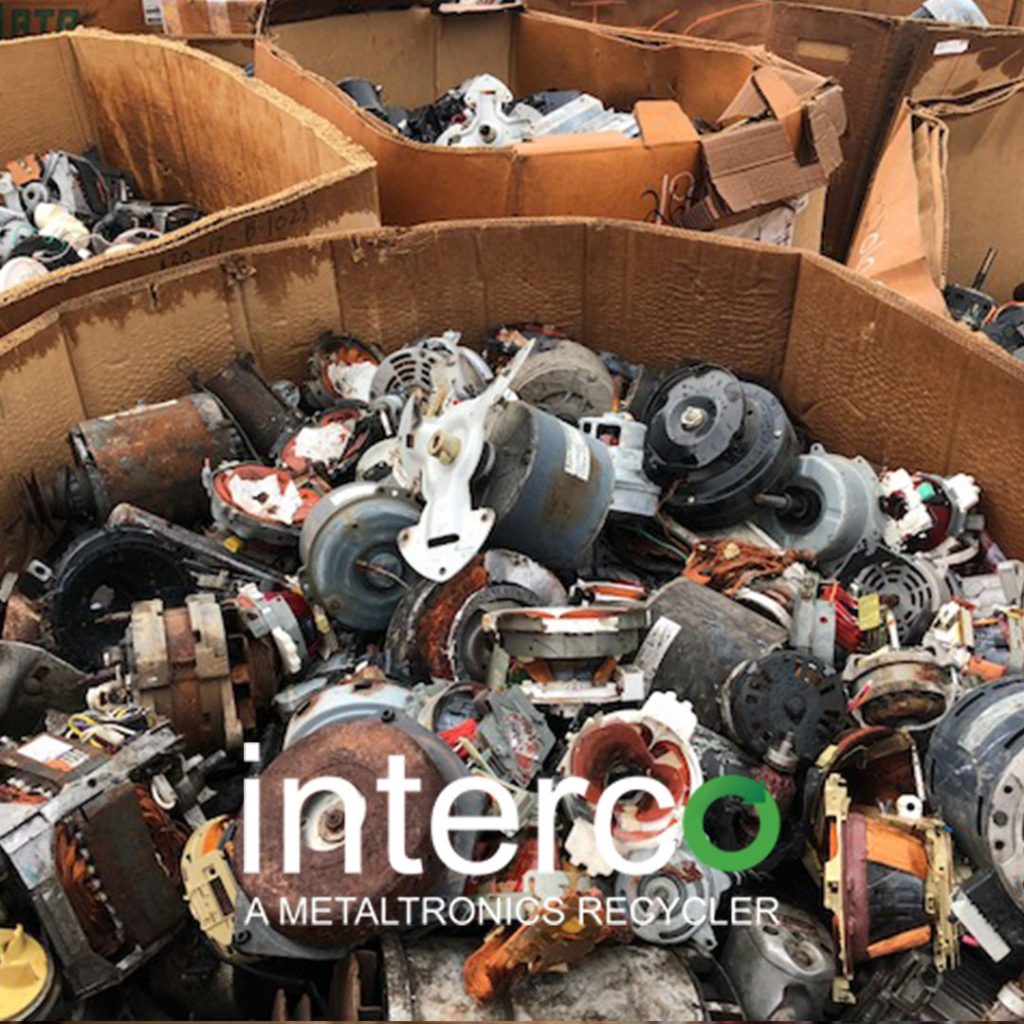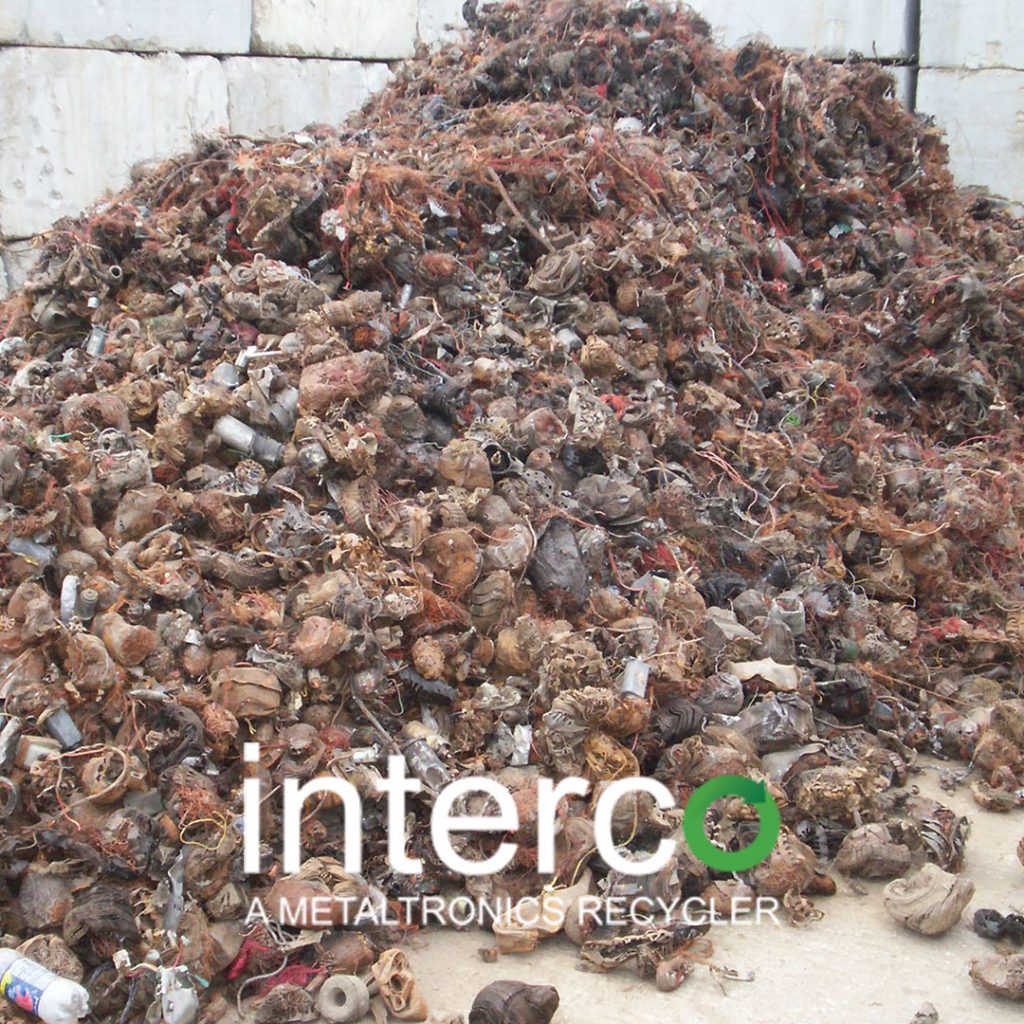Scrap Electric Motors

Scrap Electric Motors
Scrap electric motors prior to reaching their lifespan convert electrical energy into mechanical energy. These motors have a wide industrial and commercial use.
Scrap electric motors are used by a few devices including industrial fans, blowers, pumps, disk drives and various machine tools.
These scrap electric motors generate mechanical energy (force) through the interaction of its windings and magnetic field.
Electric motors contain several components that are used to assist in converting electrical energy into mechanical energy.
These components include the shaft, copper windings, bearings, armature, stator, and more.
Scrap electric motors eventually reach end-of-life status, which prompts the question of how to properly dispose of the material. Scrap electric motors are fully recyclable and otherwise end up taking space in landfill.

Recycling Scrap Electric Motors
The recycling process benefits the environment too by reducing landfill, solid waste, and pollution.
There is also value in recycling scrap electric motors as copper, a valuable metal, is found in the material.
As a result, scrap electric motors recycling:
- Reuses valuable materials
- Reduces landfill pollution
- Reduces solid waste
- Protects natural resources
- Reduces overall pollution
Interco recycles millions of pounds of motors each year.
As a result, recyclers categorize motors in to three main categories of size:
- Small motors usually fit about the size of a basketball and not much larger than an apple.
- As a result, recyclers classify motors larger than a basketball, but less than 2,000 pounds as large motors.
- Motors weighing more than 2,000 pounds over-sized motors. These motors vary in demand due to their size and nonferrous metallic content.

The Recycling Process
Scrap electric motors can be very common items to recycle. Most motors contain valuable copper and aluminum components. However, the exterior of most motors are comprised of steel with a strong shell which protects the more fragile wiring and parts within.
The process of recycling electric motors should be direct and straightforward:
- First, the recyclers collect many electric motors as possible to increase the possibility of getting enough copper.
- A hammer or hammering mill breaks the metallic casing of the motor.
- Then they separate the components and group them according to their materials.
- Finally, they take the separated components to their different recycling points and recycle them.
The more copper the more valuable an electric motor is to a recycler. The next most valuable common nonferrous metal found in electric motors is aluminum. Consequently, steel can be recycled, but steel does not share the value of copper or aluminum. Since the presence of wood and plastic on electric motors is considered a contaminate, those motors contain lower value.
Interco Recycles Scrap Electric Motors
Electric motors convert electrical energy into mechanical energy. Gadgets like industrial fans, blowers, pumps, and more need electric motors to work. There are small, large, and over-sized motors that can be found in common items such as microwaves, hand tools, air conditioners and more. Electric motor recycling reuses valuable materials, reduces solid waste, reduces overall pollution and more. Interco accepts scrap electric motors to recycle them properly.
To learn more about how to recycle electric motors, click here to get in touch with Interco.